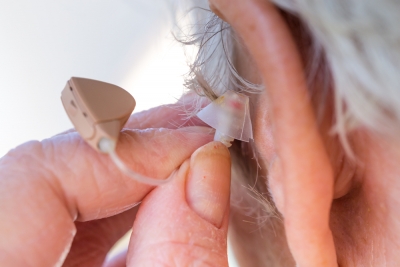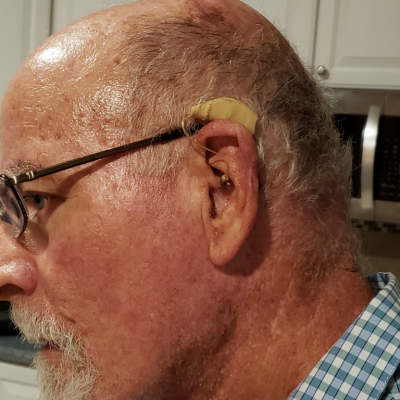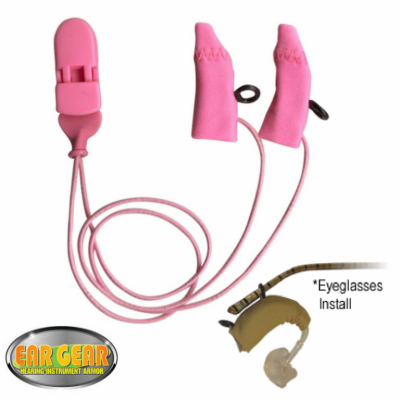There’s no sugarcoating the issue: Americans are getting old. In fact, the U.S. Department of Health and Human Services estimates that people age 65 or older made up nearly 15 percent of the population in 2014, and in Canada, people 65 and older outnumbered those 15 and under in 2015. As an audiologist or as someone in the hearing instrument profession, it may be apparent to you that seniors represent (or can represent) a growing portion of your client base. Being aware of common challenges they face with hearing aids helps you better serve them, so let’s look at some of these issues.

1. Being Active While Wearing Hearing Instruments
Of course, being old does not necessarily mean living a quiet and sedate life! Actually, not having a job, or at least not working full time, often means that seniors have more time to pursue recreational opportunities. Jogging, hiking, kayaking, and golfing are among the activities many seniors enjoy; devoting more attention to the garden is also popular.
The problem is finding adequate security and protection for hearing aids during these activities. Seniors are probably new to wearing the aids, and it can be frustrating for them to find a balance between doing what they enjoy and being able to hear well.
Fortunately, Ear Gear's hearing aid protectors have helped out in such situations. Hearing aid clips for seniors keep the instruments from falling off during an intense game of basketball, for example, and the spandex nylon sleeves are double walled and water resistant to make kayaking and jogging in the rain more accessible. Ear Gear products also assist with reducing wind noise and chafing. Seniors don’t need to slow down just because their hearing aids can’t keep up.
2. Struggling With Dementia
Dementia encompasses such conditions as Alzheimer’s disease and Parkinson’s disease; as many as eight per every 100 people 60 or older may have it. People can live years, even 20 years, after a diagnosis, and their quality of life is better when they are able to continue socializing and advocating for themselves to the best extent possible. Listening to music also helps in all stages of dementia.
It does prove problematic, however, when people with dementia lose their hearing aids or even put them in places such as the refrigerator. Hearing aid clips for seniors come in quite handy to prevent such situations.
3. Understanding How to Use the Aids
It can be difficult for some seniors to understand how to best use and care for their aids. Audiologists should provide easy-to-read directions in large print for seniors to take home, and make recommendations for professionals who can assist them in enhancing their listening and communication skills. Frequent checkups to ensure the aids are functioning optimally are great, too.
4. Actually Wearing the Hearing Instruments
Pride and vanity are well-documented reasons why many seniors do not get hearing aids; even the most successful people fall prey to these traps. So, even if seniors have listened to themselves or to family members and gotten hearing aids, they may still not wear them. You know that it’s a shame for these devices to be gathering dust, so here are a few things you can do:
- Ensure the devices fit as comfortably as possible. Ill-fitting aids are no motivator for anyone to wear them.
- Give seniors’ family members and loved ones guidelines such as those listed below (through your blog posts, handouts, and marketing materials, for instance).
- Avoid orders and judgments; don't say something like, “Wear the hearing aids, or your life is going to be bad.”
- Practice understanding and compassion (i.e. “I understand that you see wearing hearing aids as a sign of weakness. You are far from alone.”).
- Offer small challenges. For example: “Can we make a deal? It is totally your decision if you don’t want to wear the aids, but how about you wear them tomorrow when you go to dinner with your daughter?” The idea is that if the seniors have a good time and are able to participate in conversations again, they have an internal motivator to keep wearing the aids.
- Promote gradual use that builds to more of a full-time thing. An hour or two a day can lead to three, then to four, then to all day.
- Use hearing aid clips for seniors to ensure the aids do not slip off and/or become permanently lost.
- Listen patiently to seniors’ frustrations.
5. Managing Expectations
Some seniors may have unrealistic ideas of how hearing aids can help them. For example, even with the best aids, they may still miss parts of a conversation. It is important to be fair to them and to not oversell or exaggerate possible benefits of the aids. A disappointed senior may simply swear off hearing aids altogether.
There are obvious challenges when it comes to seniors and hearing aids. The population of senior citizens is diverse, and the main concern for one senior might be how to fit the hearing aids into her active lifestyle, while the concern for another senior is coming to terms with having to wear the aids. Yet another person’s family might be worried about him losing hearing aids due to dementia. In many cases, hearing aid clips for seniors are a great help. Take the time to chat with seniors (and/or their families) and identify their pain points, and you are well on your way to helping folks overcome these obstacles.





